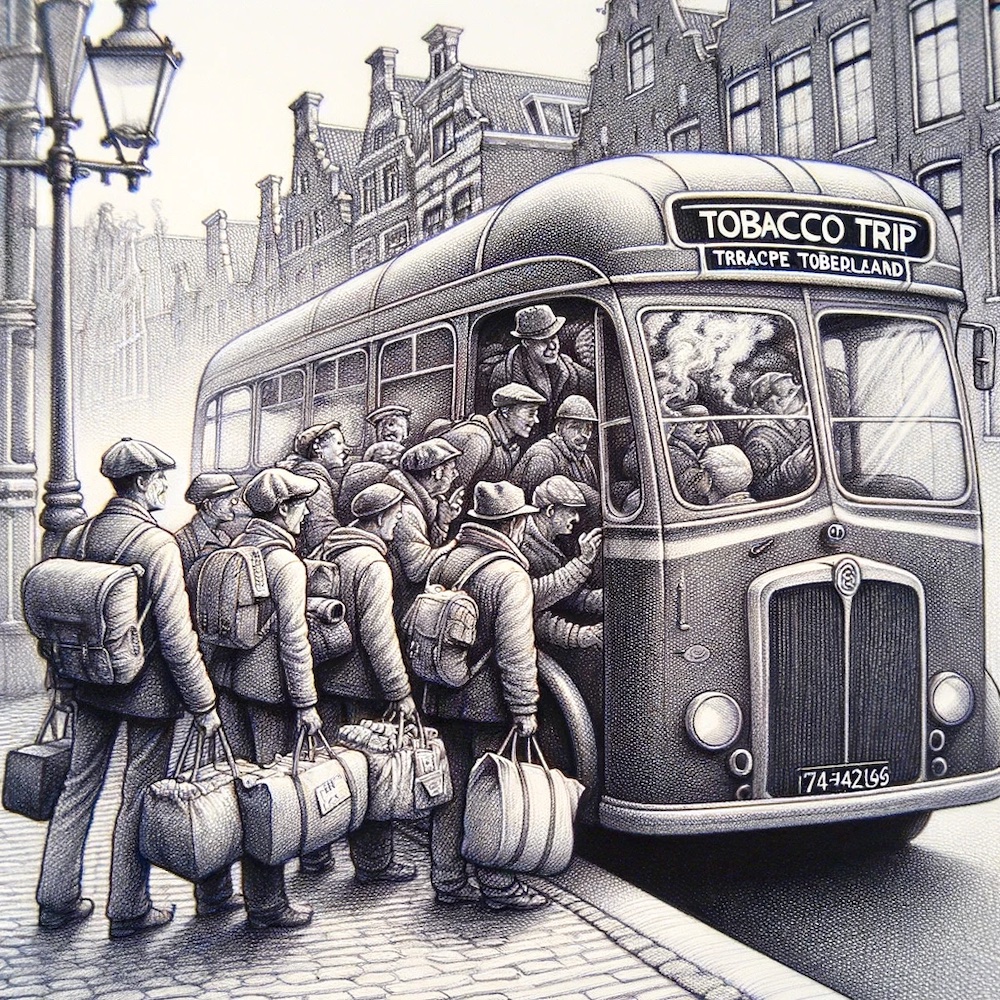Cigarette tourism and tobacco hunting across the border is booming after price increases.
The recent increases in excise duties on tobacco products in the Netherlands are driving smokers to take inventive measures to reduce the costs of their smoking habit. A pack of cigarettes in the Netherlands now costs around 11,10 euros, a significant increase compared to the previous price of around 9 euros. This price increase has made bus trips to neighboring countries, such as Luxembourg, Germany and Belgium, to stock up on cheaper tobacco, more popular than ever before.
Not only have the prices for a pack of cigarettes risen, but also for rolling tobacco, for which smokers now pay 24,62 euros instead of the previous 17 euros. These price increases are the result of new excise duty increases that came into effect on April 1. This measure is part of a broader health policy to discourage smoking in the Netherlands. Health organizations such as the Heart Foundation, KWF Kankerbestrijding and the Lung Fund have responded positively to the price increases, as higher prices can discourage smokers from smoking or encourage them to quit.
However, these excise tax increases have an unintended side effect: a significant portion of Dutch smokers move to neighboring countries to stock up on tobacco products at lower prices. According to the manufacturers, Dutch smokers often buy tens to hundreds of packs abroad at the same time. A quarter of cigarettes smoked in the Netherlands already come from abroad, and this percentage is expected to rise.

Dutch smokers are taking bus trips to neighboring countries in response to the high costs of tobacco products in the Netherlands, resulting from recent tax increases.
The rules for bringing tobacco and cigarettes into the Netherlands from an EU country allow 17 cigarettes, 800 cigars, 200 kilo of tobacco and 1 cigarillos to be imported duty-free per person aged 400 or older. This quantity is intended for personal use and not for resale. Nevertheless, the trade association predicts an increase in illegal trade after the next price increase.
To counter this trend of “excise tourism”, the Association of Cigarette and Cut Tobacco Manufacturers (VSK) proposes that the government better align excise duty rates with those of other countries and evaluate the effects of previous increases. Meanwhile, companies are offering bus trips for smokers to buy their tobacco cheaper in Luxembourg, for example, with prices starting from 39 euros for a return.
In addition to traveling abroad, some smokers turn to the underground trade, where tobacco products are sometimes sold for half price under the counter or via social media such as Snapchat and Telegram. This points to a broader social problem where high prices and taxes have unintended consequences and stimulate new forms of trade and consumption.




